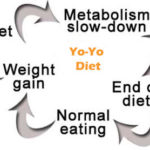India
healthysoch.com
Tripoli, September 10, 2019 :
WHO is delivering urgently-needed medicines and medical supplies to more than 40 primary health care centers and referral hospitals across Libya. The supplies, which are enough to treat 220 000 patients for 3 months, include antibiotics, medicines for non-communicable diseases such as hypertension, and surgical instruments. Also included are medicines to treat respiratory infections and skin diseases, such as leishmaniasis and scabies, that have been reported in Libya in recent months.
The shipment also includes trauma medicines, which were delivered earlier this week to field hospitals treating patients injured during the conflict in Tripoli, and to health facilities coping with mass casualties in the south of Libya.
 Medical supplies are loaded onto a truck in Tripoli, Libya“Libya’s health system is overwhelmed as a result of ongoing conflict , and health facilities need to be regularly replenished with life-saving medicines and supplies. Ensuring their delivery to the east, west and south of the country requires strong coordination. Our priority is to make sure that health facilities do not run short of supplies when they are most needed,” said Elizabeth Hoff, WHO Representative in Libya.
Medical supplies are loaded onto a truck in Tripoli, Libya“Libya’s health system is overwhelmed as a result of ongoing conflict , and health facilities need to be regularly replenished with life-saving medicines and supplies. Ensuring their delivery to the east, west and south of the country requires strong coordination. Our priority is to make sure that health facilities do not run short of supplies when they are most needed,” said Elizabeth Hoff, WHO Representative in Libya.
The provision of these supplies was funded by the Central Emergency Response Fund of the United Nations (CERF), the Office of U.S. Foreign Disaster Assistance (OFDA), and the Governments of Italy and Germany.







